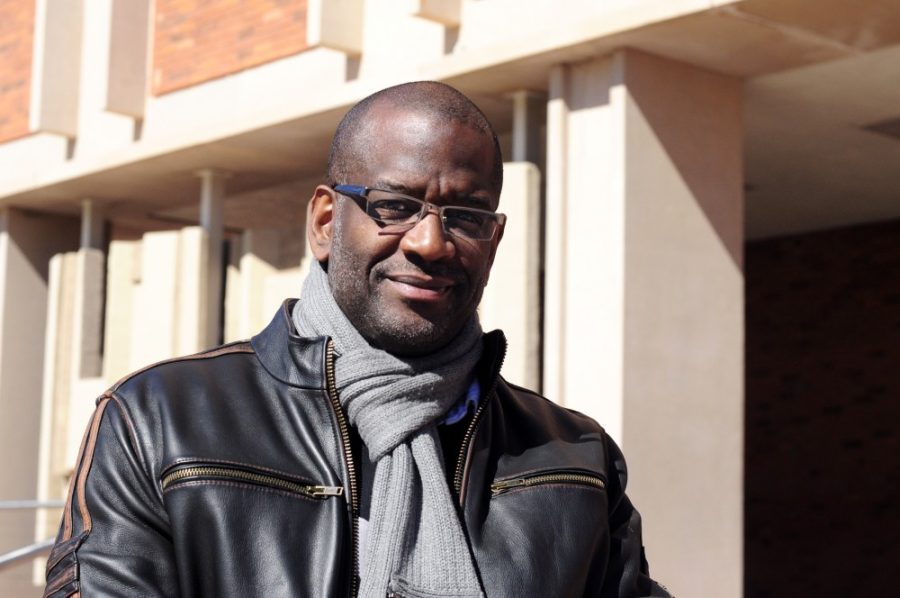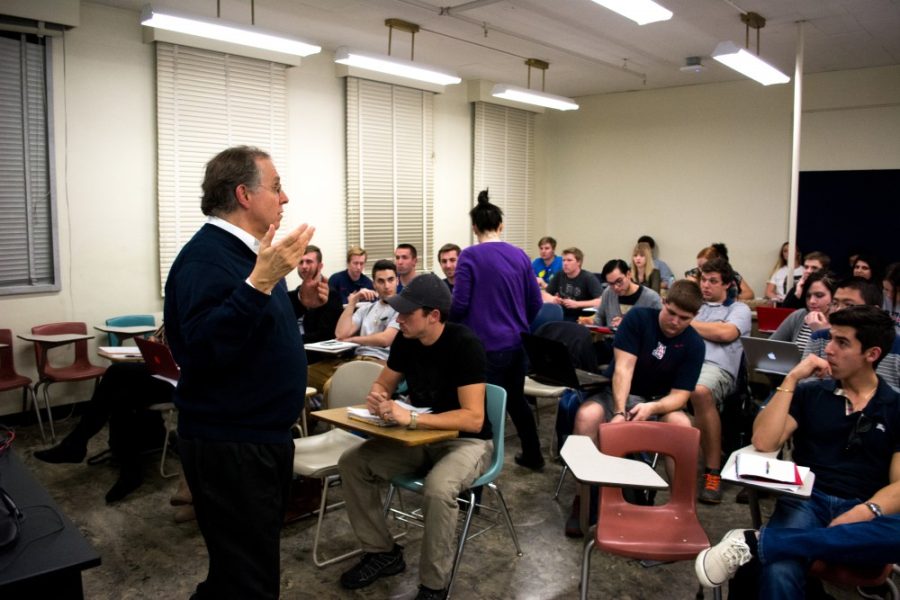Two UA departments are working together with the Pima County Superior Court to help make divorce cases and child custody cases easier to read and understand.
About 80 percent of adults represent themselves in family law cases because they can’t afford a lawyer, according to Pima County Superior Court Commissioner Dean Christoffel. Without a professional to help guide clients through the legal forms, understanding the language is often difficult.
“We started the internship and the partnership because the self-service forms for people who represent themselves in family law matters were very difficult to understand, were intimidating and were not helpful for people who needed to have information about how to access the courthouse and the court system,” Christoffel said. “So I sat down and tried to figure out how to simplify the language and decided that the only way was to try to find someone who knew how to write plain and simple English.”
Christoffel spoke with the Jerrold Hogle, director of the undergraduate English program and a professor in the English department, who passed on an idea that English interns could best rewrite the instructions for the self service centers forms. Word got around and Barbara Atwood, Mary Anne Richey Professor Emerita of Law, said there were law students who would like to help out as well, Christoffel added.
“All of us decided that the collaboration between English majors, law students, and the Pima County Superior Court would be really beneficial not only to helping the people with the redrafting and rewriting in simple plain English instructions but also to get information to English students about how lawyers think and to lawyers on how to write better,” Christoffel said.
Students from the UA English department can participate in Simpla Phi Lex, a 3-unit internship to write up documents, while students from the College of Law can participate in the 1-unit program proofreading the documents making sure the legal terms are correct.
Administrators and other officials then oversee the documents to ensure they are correct.
“The law students are the ones who understand how the divorce process goes,” said Larry Hogan, team leader for the English students and former Daily Wildcat photographer. “On the English side, we are given the responsibility to write the documents in a simplified language.”
This is the third semester the internship has created a partnership between the UA and Pima County Superior Court.
“The importance to me is multiheaded,” Hogan said. “Number one, in the English department for the most part, we focus on writing personal essays or writing novels or fiction. There is more to writing and so, being apart of this internship, it helps us [English students] to see that English is applicable not only to writing novels and screenplays, but also to the business world.”
One of the two law students working on the internship this semester, Kaytlyn Yrun-Duffy, said she has learned a lot more about what people going through divorces need.
“You’re just feeling a myriad of emotions and you’re just thrown in front of a bunch of packets of papers, a lot of the times at a reading level above what one is comfortable with, and asked to try and go and figure out their divorce,” Yrun-Duffy said. “I just have a lot of empathy for what going through that process is like.”
For the law school to be involved is beneficial as well, according to Atwood, the program coordinator.
“It helps the community. It’s a real value to the people who will be going to the Superior Court getting child custody and getting their divorce to understand and be able to have user-friendly documents that they are going to encounter in the court rather than intimidating documents.”
Simpla Phi Lex helps law students gain experience in what to expect from their future clients, Atwood added.
“These instructions are for people who don’t have lawyers,” Atwood said. “So it’s making them think about how the ordinary non-lawyer [person] would respond to a set of instructions about all the documents on how to get a divorce.”









